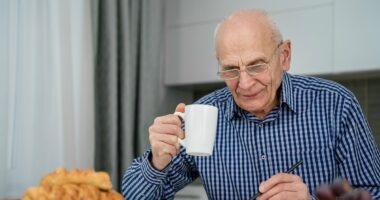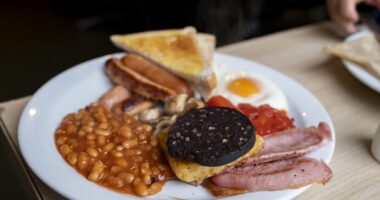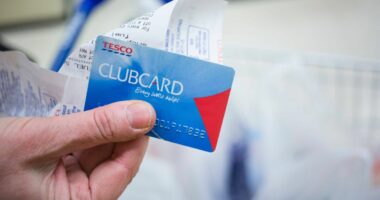Share this @internewscast.com
Wow, you’re slow at chopping. You want to learn an easier way?
I can’t count how many times a partner, friend, or parent has asked me this while I’m chopping an onion or pepper.
The answer is always no.
My relationship with cooking has been tricky for years; I’m still learning the ropes. Food became the enemy of my life when my eating disorder began at age 15—and I vowed to be around it as little as possible. My (upon reflection, terrible) rationale: How can I avoid food if I’m in the kitchen cooking it? Plus, by skipping out on cooking, I figured I had more time to exercise after work and less time to stand around smelling food and tasting it—which would have been a strict defeat, at least according to my eating disorder.
Fast forward years later. Today, after many years of therapy and clinical treatment by professionals, I still often feel “behind” as an adult in the kitchen. After growing up in a traditional home, I struggled to ‘unlearn’ my antiquated belief that I was letting down my “feminine essence” by not being able to quickly and efficiently put home-cooked meals on the table. I’m slow and methodical with my cooking (and chopping), and I want to do it alone.
When I began my recovery journey from my eating disorder in 2013, my stature and facial expression in the kitchen resembled a deer in headlights. Once I started learning how to cook, I realized how little I knew about what foods “go together,” which spices to use and when, and cooking lingo.
Food is a universal language, but I didn’t totally know how to speak it. At times, this made me feel like I’m on a lone island—and still sometimes does.
More recently, when my partner’s mom visited us in Colombia, she and I had to make dinner for eight people. In the midst of what was, more or less, a breakdown for me as I eyed all the different foods and spices, his mother swooped in and made it seem so easy. She grabbed various items and said, “Okay, we can make something from this.”
What? No recipe!? I watched her in awe. I’ve never made a meal without following the directions step-by-step. I’m not one of those people who can just “throw together” a meal. I groan and stress over the idea of making a decision about what to cook.
For me, healing started with self-acceptance
Over the years, I’ve had to work on changing my perspective around food and cooking, learning how to reimagine the two in a more helpful way. I’ve learned cooking is inherently a trial-and-error process; it’s not something you can be perfect at. This is hard for me to accept as a quintessential type-A personality.
Read Related Also: Why Do People Drool While Sleeping?
But with that knowledge, and after practicing certain dishes several times, I’ve become more comfortable with adding, exchanging, and eyeballing ingredients. In turn, this has done two things: made cooking feel more natural and calm, and quieted my “eating disorder voice” that used to count calories on autopilot. Additionally, I’ve learned to have a backup plan in case a meal goes wrong.
Music is something that’s been a major support for me, as well. When I’m worried about whether a vegetable is chopped perfectly or I put too much X or Y in a dish, music distracts me. It’s therapeutic, really. (More specifically, some of my favorite artists for kitchen dancing: Muddy Waters, Sam Cooke, Frank Sinatra, and Ray Charles.)
I’ve also learned to embrace the belief that cooking can be a communal space for bonding, and even a source of joy. Dinner parties have become a favorite type of gathering for me, in which my friends and I all cook or bring a dish. From putting out the plates to lighting the candles to starting the music, I feel a thrill from the experience—not the dread I would typically feel at the idea of doing “cooking chores.”
The ‘marathon-not-sprint’ concept is an empowering daily reminder
Altering my belief in this way—along with just owning my struggles with cooking—has been so helpful. I’m no Gordon Ramsey, and that’s perfectly okay.
I want to be clear that this has taken time, however, and I’m still growing. Eating my “fear foods,” stopping purging, avoiding binge eating, and being at peace with not exercising a certain amount of times per week have all taken me years.
I wrote a blog post back in 2019 about my experiences and tips. Even since then, I see now how my perspectives around cooking have shifted. I’ve healed more. The more I have stuck with recovery, the more confidence I’ve gained in being able to live in peace without calorie counts, and have a pint of ice cream in the freezer without believing that I’d binge on it.
In short, after battling an eating disorder, I don’t always feel super confident in the kitchen. But I know that at the end of the cooking process is me and a loved one happily chowing down—and my confidence (and comfort) grows.
As told to Ashley Broadwater.
If you or someone you know is struggling with disordered eating, you don’t have to do it alone. Schedule a free assessment today with Project HEAL at www.theprojectheal.org.













